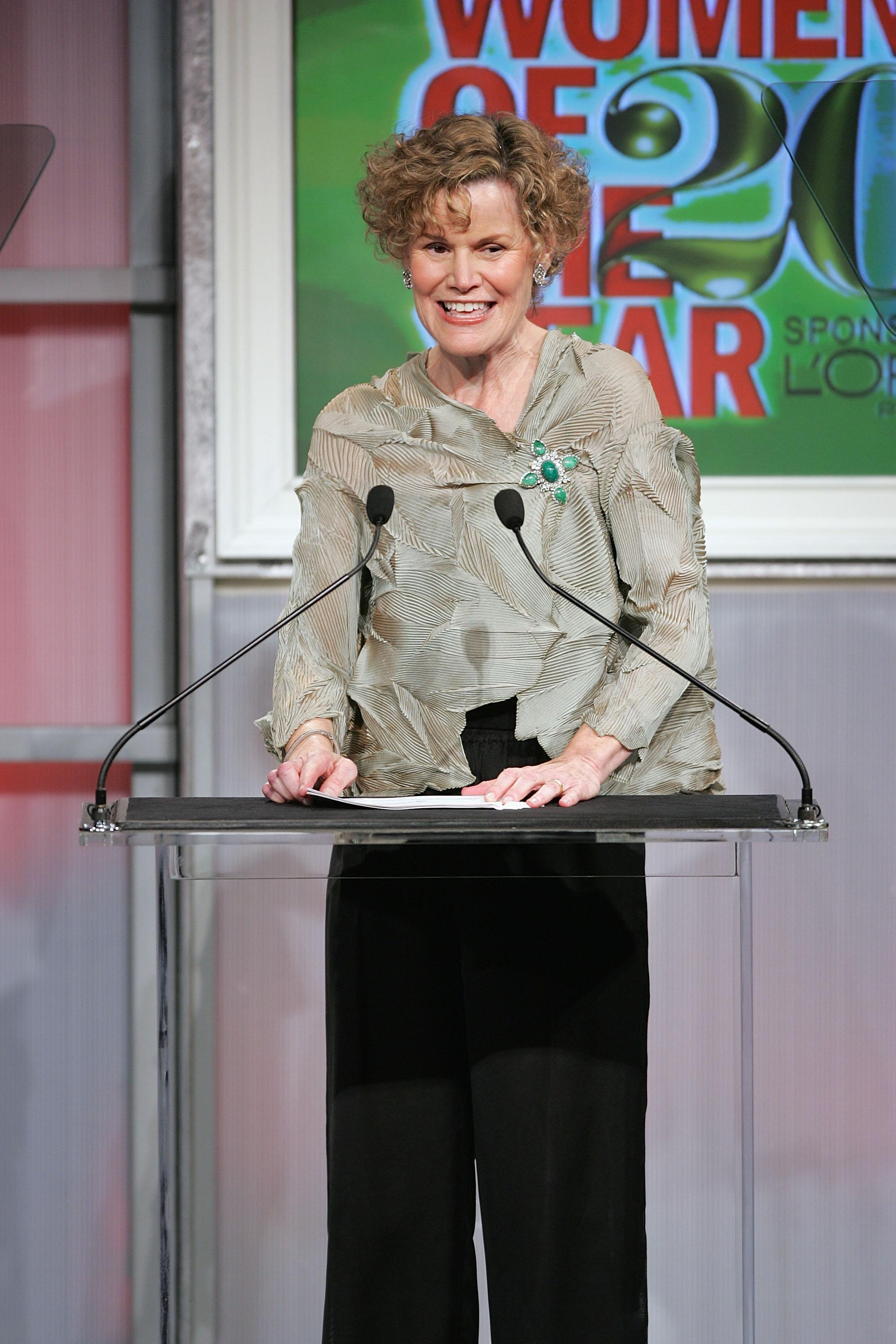It’s been five years since Judy Blume published a book, but the legendary children’s and young adult writer is back in the news thanks to Tiger Eyes, the first movie adaptation of Blume’s work, directed by her son Lawrence. Rookie magazine caught up with Blume to talk about the movie, and interviewer Jamia Wilson and Blume worked their way around to a subject that Blume’s made a priority in recent years: not just speaking to teenagers’ experiences in her novels but standing up for their rights to read books that challenge them, even if the content makes adults around them uncomfortable.
“They wanted to remove The Perks of Being a Wallflower from a middle school library near Chicago. I met kids who were defending the book the week before I saw you. I met them on Saturday afternoon and Monday night they had to present [their case] in front of the school board,” Blume told Wilson. “The kids won the vote to retain the book—I think it was six to one.”
It makes sense that an author who recognizes that children and young adults grapple with questions of faith, menstruation and masturbation, debilitating phobias, and extreme and disturbing misbehavior by their siblings would also recognize children as independent actors and support them, even and especially when it means challenging adults’ assumptions about what’s kid-friendly. “I always say that censors don’t come near you unless they know kids like your books,” Blume told Wilson. “They’re not sitting there reading all of the books. They are waiting until they find out if kids like it first.”
We don’t hear a ton about book-burners these days, but that doesn’t mean concerned parents aren’t trying to get books removed from curricula and school libraries. Earlier this year, a Fairfax County, Va., mother tried to get Toni Morrison’s Beloved out of her high school senior’s English class; Chicago Public Schools removed Marjane Satrapi’s graphic memoir Persepolis from the seventh-grade reading lists on the grounds that the torture sequences were too intense; and a Northville, Mich., woman complained to her school system that Anne Frank was “pornographic” (the school disagreed).
Parents are always going to be anxious over how fast their children grow up. It’s easy to dismiss these people as loons, but it’s smarter for kids, school systems, and writers alike to instead try to make them understand that a book isn’t going to blindside a child with ugliness or pain. Instead, encountering something tough on the page lets kids know that they aren’t alone in their troubles—or makes them more ready for the realities that are coming for them as an inevitable part of growing up, no matter how hard their parents try to protect them. As Parker Posey’s bookstore clerk told Louie last season, as he searched for a good read for his daughter: “Some of these books will let her take these feelings, these emotions, out for a safe kind of spin.” Blume’s support for kids who are fighting for their rights to read isn’t just about respecting them as readers. It’s about preparing them to be citizens.
